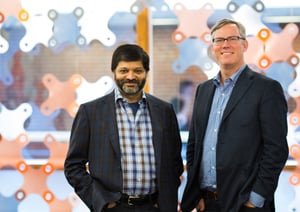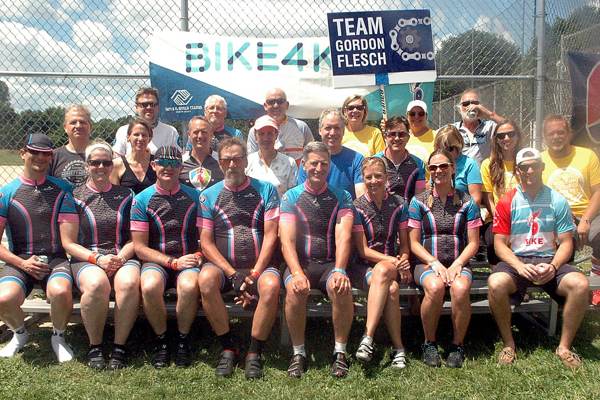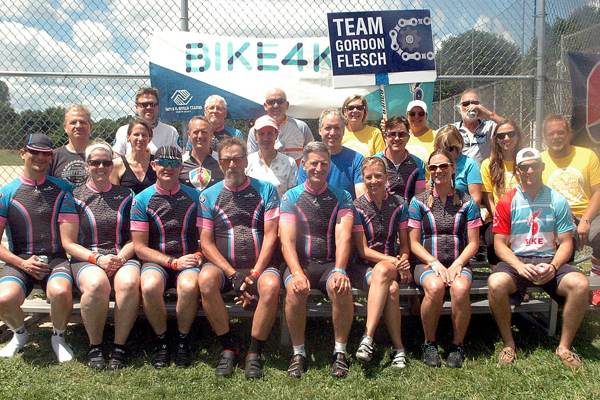More than 26,000 sales and marketing pros descended on the Boston Exhibition and Convention Center last week for HubSpot's annual INBOUND conference. Last year, CEO Brian Halligan did something radical, announcing that the company was retiring the marketing funnel, which has been the dominant sales and marketing model for many years. His new marketing model is the flywheel, which helps company attract and then retain more customers.
This year, he had no big surprises, but offered perhaps something more important — a playbook for marketing like a disruptive startup. He talked about companies like Carvana, Chewy, Casper, and Spotify, which he calls “experience disruptors,” companies whose marketing lets them run over the incumbents in their industry. “If I look at all of the incumbents, their flywheels are full of friction,” says Halligan. “The experience-disruptor are very good at pulling the friction out of their flywheel and getting that thing to spin.”
His thesis is that the new disruptors are not disrupting technology but disrupt the experience customers have with a company. To achieve this kind of relationship, Halligan says marketers must:
1. Get Experience-Market Fit
Incumbent businesses tend think about product-market fit, but experience disruptors think about experience-market fit. For example, Carvana set out to create a whole new way to buy a car. “They proved that great products matter but a great product with an even better experience will win every time,” says Halligan. “How they sell is why they win.”
2. Remove Friction
Many of the companies cited as experience disruptors are consumer-to-consumer retailers. But the principles remain the same for business-to-business disruptors as well. In fact, Halligan claims the business to business disruptors he’s talked to are running Marketing Departments that work like a consumer-oriented company. “Today, people are buying multi-million-dollar pieces of software online, like you would buy a toothbrush or consumer product,” he asserted.
3. Personalize
The experience disruptors offer a very personalized flywheel experience. However, Halligan believes companies are moving away from traditional customer personas and towards data clusters to underline their personalization efforts. In fact, the most famous master of personalized marketing, Netflix, is moving from personas and towards data. Halligan says clusters offer more nuanced portraits of consumers and helps capture the small differences of potential buyers better.
4. Sell Through Your Customers
Instead of forcing customers to buy products on your terms, innovators like Warby Parker let consumers take the product home and try glasses on at their own pace. “They don’t spend trying to extract value from their customers, they spend all their time trying to add value to their customers.”
5. Attack Your Business Model
Halligan says disrupter rethink their terms and conditions in a way that is much more customer-friendly. By rewriting their terms, these companies are able to disrupt their industries. To show what he means by consumer-oriented, Halligan described ordering a size Medium costume for his dog Romeo. “I called Chewy and said I’d like to return my Medium for a Large. The woman said, ‘No, no, no, that’s not how we do it. Give the Medium to a friend and we’ll send you a Large for free.” He says that he simply gave the Medium-sized outfit to another dog, Woodford, which helped make Woodford’s owner a Chewy.com convert. “When you talk to these businesses, they sound more like executives from the Ritz-Carlton or the Four Seasons,” he says. “They sounded like they’re in the hospitality business. I would describe them as ultra-modern hospitality companies.”
Hubspot realizes that it is diffi cult for most companies to live by these precepts. For the second half of the keynote, Hubspot co-founder Dharmesh Shah discussed “Facing Fears: Growing Better by Growing Bolder.” In order to frame his discussion of why companies are afraid to try disruptive business models, Shah talked about his personal fears, in particular his attempt to learn to swim as an adult.
cult for most companies to live by these precepts. For the second half of the keynote, Hubspot co-founder Dharmesh Shah discussed “Facing Fears: Growing Better by Growing Bolder.” In order to frame his discussion of why companies are afraid to try disruptive business models, Shah talked about his personal fears, in particular his attempt to learn to swim as an adult.
He described the fears that hold companies back as:
1. The fear of commitment
A hesitation to commit often stems from wanting to hedge your bets. The result is uninspired compromises or avoiding decisions altogether. Dharmesh described how in the early days of HubSpot the company couldn't commit to exactly who their customer-base was going to be. Instead of defining those customers, they tried to be everything to everyone. “When you commit to nothing, you compromise everything,” says Shah.
2. The fear of differences
Shah points to the fact that HubSpot was founded by six male MBAs from MIT. That homogeneity was not good for the company, he admits. “Today, companies are encouraged to hire people who are a good culture fit, but there's a fine line between hiring for culture fit and hiring a clone of you."
Instead of hiring people who are just like all your other employees, hire people who bring other perspectives and then communicate your culture to everyone who works for the organization.
3. The fear of change
Shah pointed out that for decades the Business Roundtable defined a corporation by delivering shareholder value… until three weeks ago. Now the top two things are delivering value to customers and investing in employees (before shareholder value). Shah hopes that this means more companies will be willing to change their culture and offer more flexibility and benefits that help people be happy and fulfilled in their work.
4. The fear of disappointing
Customers love having the freedom of choice, but hate the complexity of choosing. Too many marketers and salespeople fear change and failure, but the more dangerous challenge is avoiding stagnation. For and example, Shah cited the example of when Steve Jobs returned to Apple as CEO, Jobs willingly killed many of the company’s product lines, alienating many customers but delivering a better experience for all customers of the remaining Apple products. “We fear disappointing a few, but we should fear not delighting the many,” said Shah.
5. The fear of inferiority
Finally, Shah argued that many companies fail because they promise things to customers that they can’t deliver. They worry that they will be considered inferior to their competitors and lose out on sales.
But when they can’t deliver, those customers will find them untrustworthy, which is a much more difficult failing to recover from. “Today, trust is scarce, and as a result, those companies that can provide it, succeed,” he says.
In short, Shah and Halligan are giving marketers and salespeople a roadmap to make your business do things customers want, and not do things customers don't want. Shah ended the presentation with an Oath of Experience. “As marketers, we will deliver the experience, the whole experience, and nothing but the experience.”






 cult for most companies to live by these precepts. For the second half of the keynote, Hubspot co-founder
cult for most companies to live by these precepts. For the second half of the keynote, Hubspot co-founder